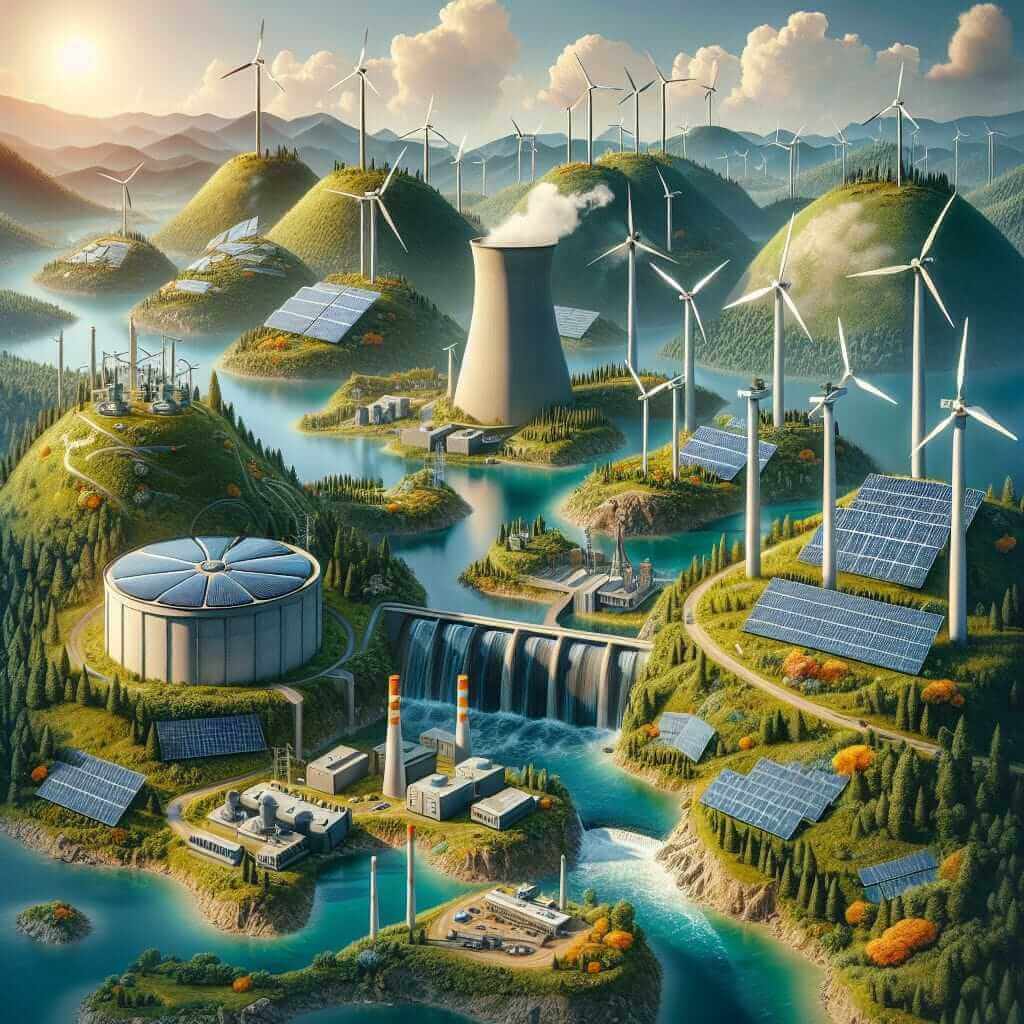The IELTS Reading section is designed to assess a candidate’s reading proficiency and comprehension skills. It includes a variety of texts on different topics, and one of the increasingly common themes is the “Effects of Climate Change on Renewable Energy Policies.” With global awareness of climate change on the rise, and consequent policy shifts towards renewable energy, this topic has gained prominence in many IELTS tests, reflecting current global concerns and trends. Based on historical data analysis and relevance, this topic is highly likely to appear in future exams.
Sample IELTS Reading Passage: Effects of Climate Change on Renewable Energy Policies
Text
Effects of Climate Change on Renewable Energy Policies
Climate change, heralded by increasing temperatures, rising sea levels, and unpredictable weather patterns, has catalyzed a global shift towards renewable energy. Governments and institutions worldwide are responding to this urgent crisis by crafting and implementing policies that favor renewable energy sources over traditional fossil fuels. These policy changes aim to mitigate the environmental impacts of climate change, reduce carbon footprints, and foster sustainable development.
One of the primary drivers of this policy shift is the recognition of the harmful effects of greenhouse gas emissions from fossil fuels. Notably, carbon dioxide (CO2) and methane (CH4) are significant contributors to global warming. Thus, policies are increasingly mandating reductions in carbon emissions, promoting energy efficiency, and encouraging investments in solar, wind, geothermal, and hydroelectric power.
Countries like Germany and Denmark have become pioneers in renewable energy adoption, setting ambitious targets for renewable energy production. For instance, Germany’s Energiewende policy focuses on phasing out nuclear power and increasing the share of renewables in the energy mix. Denmark, meanwhile, aims to be 100% fossil-fuel-free by 2050, emphasizing wind power as a cornerstone of its energy policy.

The economic implications of these policies are considerable. By creating incentives for renewable energy projects, governments aim to stimulate green technology sectors, which are rapidly becoming major employment and growth areas. However, the transition is not without its challenges. Issues such as the intermittency of renewable energy sources, the need for grid modernization, and the economic costs of policy shifts present significant hurdles.
In addition to national policies, international agreements like the Paris Agreement play a crucial role in shaping renewable energy policies. The agreement aims to limit global temperature increases to well below 2°C, necessitating concerted global efforts towards reducing carbon emissions. Consequently, countries are required to develop and implement national action plans that prioritize renewable energy development and integration.
However, the effectiveness of these policies can be situational. Some regions face geographical and climatic limitations that hinder the widespread adoption of certain renewable technologies. Moreover, political and economic stability also influences the implementation and success of renewable energy policies.
In conclusion, the effects of climate change have underscored the need for robust renewable energy policies. While significant progress has been made, ongoing challenges must be addressed to ensure a sustainable and climate-resilient future.
Questions
1. Multiple Choice
-
According to the passage, what is a major impact of climate change driving renewable energy policies?
a) Decrease in global temperatures
b) Increase in renewable energy costs
c) Harmful effects of greenhouse gas emissions
d) Reduction in fossil fuel availability -
Which country aims to be 100% fossil-fuel-free by 2050?
a) Germany
b) Denmark
c) The United States
d) China
2. True/False/Not Given
- Germany’s Energiewende policy includes the continuation of nuclear power usage.
- Solar and wind power are the only sources of renewable energy being promoted globally.
- The Paris Agreement aims to limit global temperature increases to below 3°C.
3. Matching Information
Match the following countries with their respective renewable energy policies:
6. Germany
7. Denmark
i. Aims for a 100% fossil-fuel-free energy mix by 2050
ii. Energiewende policy focusing on phasing out nuclear power4. Summary Completion
Complete the summary with words from the text:
The shift towards renewable energy is driven by the (8) impacts of greenhouse gases like carbon dioxide and (9). Policies aim to reduce these emissions while promoting solar, wind, geothermal, and hydroelectric power. Germany’s Energiewende policy and Denmark’s goal to be (10) fossil-fuel-free by 2050 are examples of ambitious national strategies.
Passage Answer Key
- c) Harmful effects of greenhouse gas emissions
- b) Denmark
- False
- False
- False
- ii. Energiewende policy focusing on phasing out nuclear power
- i. Aims for a 100% fossil-fuel-free energy mix by 2050
- harmful
- methane (CH4)
- 100%
Common Mistakes in the Reading Section
One frequent mistake in the IELTS Reading section is not paying close attention to the specifics of the text. Often, examinees might assume information based on general knowledge rather than what is explicitly stated. Practice focusing on exact text content for True/False/Not Given and Matching Information questions.
Vocabulary
- Catalyzed (Verb): /ˈkætəˌlaɪzd/ – Caused or accelerated a reaction.
- Mitigate (Verb): /ˈmɪtɪˌgeɪt/ – To make less severe or serious.
- Energiewende (Noun): /ˈɛnəˌɡiːˈvɛndə/ – The German term for the transition to a more sustainable energy system.
Grammar Focus
-
Relative Clauses: Relative clauses give additional information about something without starting a new sentence. For example, “Countries like Germany and Denmark, which have adopted renewable energy policies, serve as examples.”
Structure: [Main clause], [relative pronoun] + [additional information].
Example: “Policies, which mandate carbon emission reductions, are increasingly common.”
Tips for a High IELTS Reading Score
Reading extensively on a variety of topics, including current global issues such as climate change and renewable energy, can significantly enhance comprehension skills. Practice with different types of IELTS questions, focus on developing scanning and skimming techniques, and always check your answers against the text. Consistent practice and a strategic approach are key to mastering the IELTS Reading section.
Internal Links: